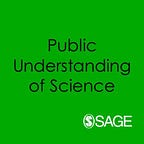Immunization. How vaccines became controversial
Review by Andrew Pleasant
I hope that the anti-vaccine movement will take Blume’s critique of their efforts into serious consideration as they make their own decisions about future policy and practices.
Stuart Blume, emeritus professor of science and technology studies at the University of Amsterdam, presents vaccination as subject to social perceptions, understandings, misunderstandings, and trust, and he concludes that the mechanisms of science — specifically public health — are insufficient to resolve the social drama that has developed around vaccines and vaccination.
Blume recounts the history of sloppy, often callous and top-down approaches to developing vaccines and getting those vaccines used around the world. Indeed, there is much to criticize and it seems fair to connect those mistakes to the development of an anti-vaccination school of thought. But those approaches –top-down and profit-driven, as they may be — have without a doubt improved the human condition overall.
It is also true that the world — including science writ large and the pharmaceutical industry in particular — is far from a perfect place. But, from my perspective, it does seem rather easy to picture a perfect world and then spend time pointing out the differences between our lived experience and that ideal picture of perfection.
I won’t argue there is nothing to be learned from such an approach that is common in comparative analysis across the human experience ranging from religion to politics and science. I will suggest, however, that such an approach leaves much of the hard work to others. Given the realities of the economics, the variations in governing philosophies, the structure and status of global organizations, and the broad variations in social and cultural structures and beliefs about health and medicine around the world, I do not find a strong, focused solution in Blume’s words.
Perhaps it is sufficient to simply document that a problem exists, lay out the social, political, cultural, historical, and economic forces that define and underpin that problem, and then close with broad generalities of where solutions may lie. But I believe one could argue that such an approach is also a basis for why society often finds academia lacking and irrelevant.
Imagine an anti-vaccination crusader reading Blume’s words. Given the well-documented power of previously held beliefs on how an individual filters, frames, and assigns meaning to communication such an individual might find Blume’s work reinforces their previously held beliefs. I do not think that was Blume’s goal but I do suspect it is a possible outcome for some readers. Conversely, I am not sure that a vaccine professional, be it researcher or medical practitioner, would also come away from the volume believing that their profession’s history and conduct were largely justified.
The irony is real. Blume is correct in pointing out that in many under-resourced places in the world, vaccination is perhaps the best funded of efforts to address public health. Thus, while many people are lacking food and basic resources for living, they are relatively well immunized. But it is also true that the world remains poised on the edge of eradicating polio.
Blume argues correctly, in my opinion, that much of the basis for the anti-vaccine movement (‘vaccine hesitancy’, in his words) was in the approaches taken to develop, distribute, and promote including through legal obligation, the use of vaccines. He documents well such conflicts, but does not equally present an accompanying and workable approach to resolving them.
I hope that the pharmaceutical industry, academic researchers focused on vaccine development, and public health efforts around the world will take Blume’s critique of their efforts into serious consideration as they make decisions about policy and practice. I also hope that the anti-vaccine movement will take Blume’s critique of their efforts into serious consideration as they make their own decisions about future policy and practices.
Overall, I have to imagine there may be a better way to tell the story if the goal is more than documentation but also to influence people to work toward changing their world in a fully-informed manner. But perhaps, in the end, I am the idealist.
With the continuing emergence of new infectious diseases such as Ebola Hemorrhagic Fever I would hope to see more progress in developing viable, evidence-based, effective, and transparent approaches to communicating about and developing vaccines and vaccination strategies. In order to succeed, such approaches must directly engage with people early and often so that the strategies developed are socially and culturally acceptable, relevant, and make a positive difference in the world.
Andrew Pleasant is Senior Advisor on Health Literacy Interventions, Research and Evaluation at Health Literacy Media in the United States. Andrew has taught at Cornell University, Brown University, and Rutgers University, has published numerous journal articles and book chapters and is a former consultant to the World Health Organisation.
